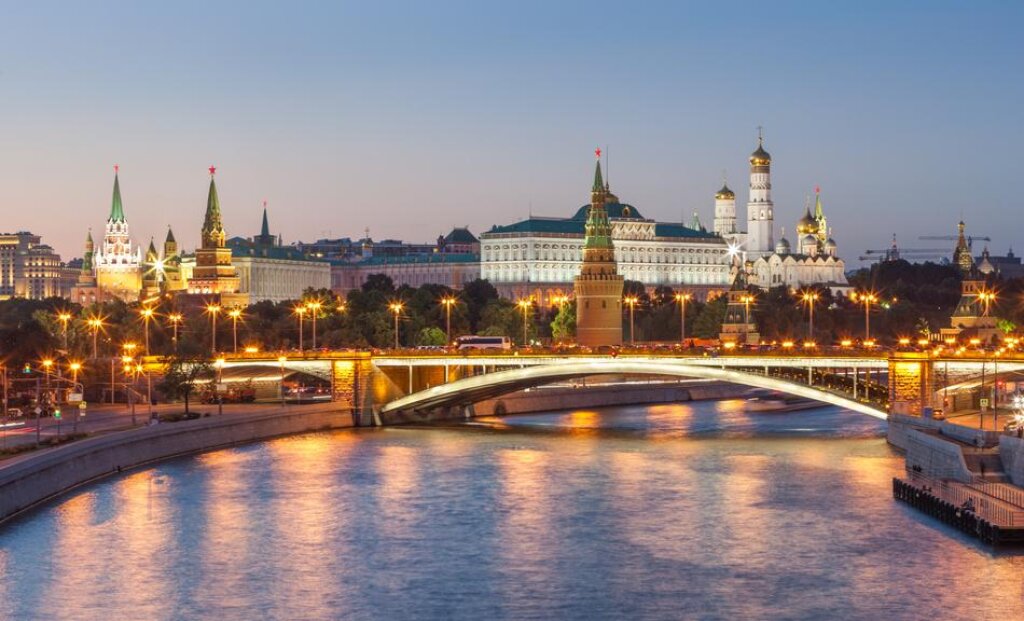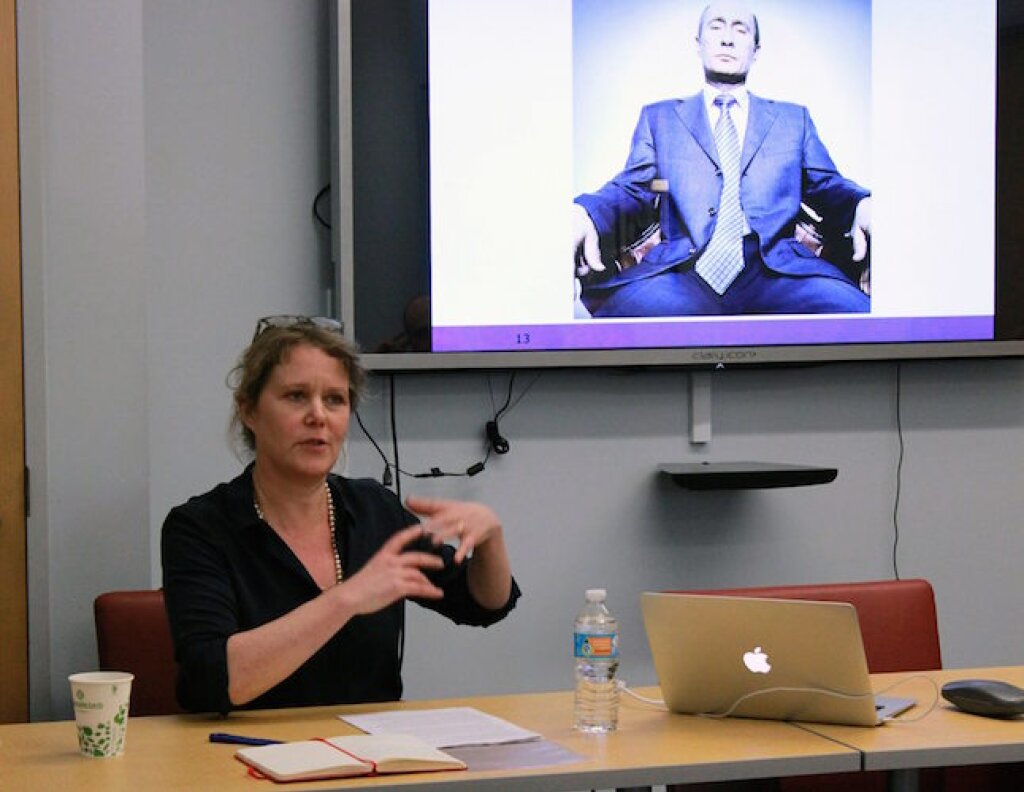On April 12th, the Jordan Center and the Harriman Institute co-hosted a panel on the private sector in Russia as part of the NYC-Russia Public Policy Series. Panelists included Simeon Djankov, Director of Development Economics at the World Bank; Dinissa Duvanova, Associate Professor of International Relations at Lehigh University; Alena Ledeneva, Professor of Politics and Society at University College London; Ivan Nechepurenko, Moscow bureau reporter at The New York Times; Andrei A. Yakovlev, Director of the Institute for Industrial and Market Studies and the International Center for the Study of Institutions and Development at the Higher School of Economics. The panel was chaired by Jordan Center Director Joshua A. Tucker and Alexander Cooley, Director of the Harriman Institute at Columbia University. In case you missed it, you can stream it here.
The panel began with an introduction by Professor Cooley, who noted that many argue that politically independent and economically resilient private sector and economic actors are solutions to various problems in contemporary Russia. However, the Russian private sector has faced a double burden from an authoritarian government and a flawed economic system. Restrictions related to the Covid-19 crisis exacerbated the challenges encountered by Russian businesses. Professor Tucker then introduced the panelists and invited them to open up the discussion of the challenges Russian businesses face due to state policies, economic factors, and the pandemic and to examine the potential for future development.
Professor Duvanova started the discussion by providing an overview of the trends and challenges of Russia’s private sector in recent years. She highlighted President Putin’s 2019 calls for a comprehensive review of business regulations, or the infamous “regulatory guillotine.” By citing the latest statistics of the increasing number of regulatory documents, Duvanova stressed that regulations disproportionately impeded the development of small and medium-sized businesses activities. While the new regulations might help establish constraints on bureaucratic abuses or corruption, the enormous volume of these changes generates uncertainty and anxiety in the private sector and negatively affects the business climate.
Simeon Djankov narrowed the focus to the effect of the COVID-19 pandemic on the private sector in the past year. He reminded us, first and foremost, that Russia’s enterprises -- especially in energy and finance -- have been predominantly state-owned even prior to the pandemic. Private enterprises are most prevalent in the service sector, which has been disproportionately affected by the pandemic. “[What] in the previous year constituted nearly a third of all of all tourists basically disappeared overnight,” said Djankov, who focused on the case of international tourism, which collapsed by 80%. However, on a brighter note, domestic tourism grew up to tenfold in Russia. Djankov predicted that 2021 would be a record year for domestic tourism, transportation, and business start-ups.
Ivan Nechepurenko offered a perspective from the newsroom at the dawn of the pandemic. “We saw that one of the big differences [between Russia and] the other countries [in handling the pandemic] was that the Russian state was not offering much of any help to businesses that had to shut down,” said Nechepurenko. He described the desolate sceneries in Saint Petersburg, a city otherwise driven by a small business economy, unlike the largely corporate Moscow. “I went to a hairdressing salon that employed a lot of migrant workers,” said Nechepurenko, who explained that the businesses were forced to run on such tight budgets by only hiring cheap migrant labor. “The migrant workers had to basically go to the streets because they had no money to pay for their rents, and they had no way to leave the country.” He quoted statistics to emphasize that real income went down by 3.5% and that the predominantly private industry of tourism contributed to only 6% of the national GDP, which heavily relied on the state-owned enterprises that made up 70% of the national economy.
Professor Yakovlev similarly shed light on the efficiency of the governmental support of the Russian economy. He shared a recent study of a number of sectors of the economy -- including IT, retail, pharmaceutics, metallurgy, tourism, automobile, and the chemical industries -- and the extent to which they were impacted by the pandemic. Based on the 45 interviews conducted in 6 sectors, IT and the digital economy, in stark contrast with tourism, is one of the “beneficiaries” of the recent development. With the growing needs of e-commerce and e-finance, what had contributed to only 1% of Russia’s national GDP prior to 2020 significantly minimized the pandemic impact in 2021. However, with the most recent cut in the IT budget by the Russian government, Yakovlev predicted that the industry would not be able to fully recover this year.
Professor Ledeneva responded to the previous speakers and brought in the perspective of the informal economy. “You cannot access the economic history of any period in developmental authoritarianism if you are not looking at the ‘underwater’ part of the iceberg,” she put simply. Taking a deep dive beneath the numbers and the statistics, Ledeneva highlighted that, while many businesses previously hid from the public radar of regulation and blacklisting, they now have to compete with each other to be on the radar to receive public resources and protections.
During the Q&A, the speakers answered questions concerning the impact of the coronavirus pandemic on the government’s fiscal incentives to support the private sector. Ivan Nechepurenko suggested that, contrary to popular belief, Russia’s recent building of the stabilization fund might function more as a national bet toward independence from a globalized economy than as a gesture to aid private businesses domestically. Professor Duvanova agreed that Covid-19 has not fundamentally changed the priorities of the Russian government. While the state-controlled sectors are cushioning the impact of the pandemic and the public health emergency, the state has little to offer to the small businesses, who are left on their own to absorb the recession in the private sector.



